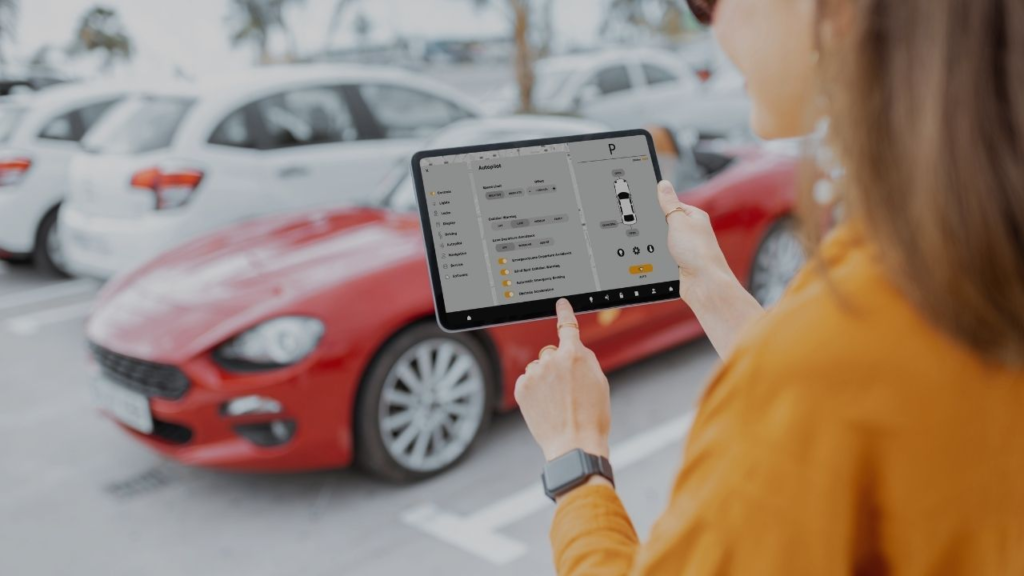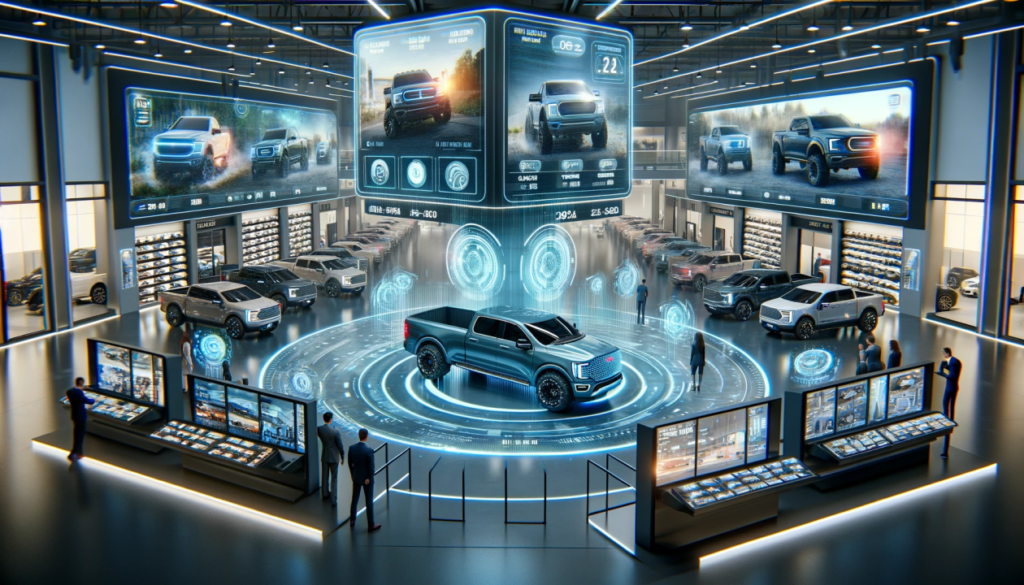The automotive industry is undergoing a seismic shift as technology reshapes how dealerships operate. Gone are the days of relying solely on traditional sales methods and in-person interactions. Today’s customers expect convenience, speed, and personalized experiences from their car-buying journey. For automotive dealerships, this means embracing digital transformation to stay competitive.

As we dive deeper into the world of digitizing dealerships, we’ll explore essential tools and technologies that can streamline operations and enhance customer engagement. From online inventory management to advanced marketing strategies, these innovations are not just trends—they’re necessities for survival in an increasingly digital marketplace. Buckle up; it’s time to navigate the road ahead!
The importance of digitizing automotive dealerships
Digitizing automotive dealerships is no longer a luxury; it’s an essential strategy for success. The rapid evolution of technology has changed how consumers shop and make purchasing decisions. They expect seamless online experiences that mirror the convenience they find in other industries.
Dealerships that embrace digital solutions can streamline operations, improve efficiency, and reduce costs. Digital tools enable better inventory management, allowing dealerships to keep track of available vehicles in real time. This not only saves time but also helps in making informed business decisions.
Moreover, digitization enhances customer engagement by providing tailored experiences through data analytics. Understanding consumer behavior allows for more personalized marketing efforts that resonate with potential buyers.
As competition intensifies, those who fail to adapt may find themselves left behind while others thrive in this new landscape of automotive sales. The shift towards digital isn’t just about keeping up; it’s about leading the way forward.
Customer expectations in the digital age
Today’s customers are more informed than ever. They expect seamless experiences, both online and offline.
When shopping for a vehicle, potential buyers do extensive research. They browse reviews, compare prices, and explore inventory before even stepping foot in a dealership. This shift underscores the importance of having an updated digital presence.
Fast responses matter too. Customers anticipate quick answers to inquiries—preferably through chat or social media. Slow replies can easily turn potential leads into missed opportunities.
Moreover, personalization is key. Buyers appreciate tailored recommendations based on their preferences and previous interactions. A one-size-fits-all approach simply won’t cut it anymore.
As expectations evolve with technology advancements, automotive dealerships must adapt accordingly to stay competitive in this fast-paced landscape.

Online inventory management tools
Online inventory management tools have revolutionized how automotive dealerships operate. These platforms streamline the tracking and managing of vehicle stocks, ensuring real-time updates.
With user-friendly interfaces, dealers can easily monitor their inventory levels. This eliminates the risk of overstocking or running out of popular models. Accuracy is key in maintaining customer satisfaction.
Moreover, these tools often integrate seamlessly with dealership management systems. Such integration enhances visibility across multiple locations and simplifies reporting tasks.
Many solutions also offer analytics features that help identify trends and optimize stock based on demand patterns. By leveraging this data, dealerships can make informed decisions about purchasing and promotions.
Additionally, mobile compatibility allows sales teams to check inventory on-the-go. Whether at a trade show or during a client meeting, having access to live data boosts responsiveness and efficiency in customer interactions.
Digital marketing strategies for dealerships
Digital marketing strategies are essential for automotive dealerships looking to thrive in a competitive landscape. These tactics help connect with customers where they spend most of their time: online.
A strong social media presence can engage potential buyers effectively. Platforms like Instagram and Facebook allow dealerships to showcase inventory through eye-catching visuals and targeted ads.
Search engine optimization (SEO) plays a crucial role as well. Optimizing website content ensures that dealership sites rank higher on search engines, attracting more organic traffic.
Email marketing is another powerful tool, allowing dealerships to reach out directly to leads with personalized offers and updates about new arrivals or promotions.
Implementing analytics tools enables dealers to track customer behavior and refine their marketing efforts based on data-driven insights. This approach fosters better customer relationships, ultimately driving sales growth while enhancing brand loyalty among consumers.

Virtual test drives and video walkarounds
Virtual test drives and video walkarounds are revolutionizing how customers experience vehicles. These technologies allow potential buyers to engage with cars from the comfort of their homes.
With virtual test drives, dealerships create immersive experiences that simulate real driving conditions. Customers can feel the thrill of acceleration or take in the nuances of handling without stepping foot on a lot.
Video walkarounds add another layer to this digital interaction. Sales teams produce detailed videos highlighting key features, interior layouts, and even unique selling points. This transparency builds trust and helps customers make informed decisions.
These tools cater to today’s tech-savvy shoppers who expect convenience and efficiency. By offering such innovative solutions, automotive dealerships enhance customer satisfaction while streamlining their sales processes effectively.
Artificial intelligence and chatbots for customer service
Artificial intelligence is revolutionizing customer service in automotive dealerships. With AI-driven chatbots, dealerships can provide instant responses to inquiries, enhancing the overall customer experience.
These virtual assistants are available 24/7, handling everything from basic questions about inventory to scheduling test drives. They offer a level of convenience that traditional methods simply can’t match.
Chatbots also gather valuable data on customer preferences and behaviors. This information helps dealerships tailor their marketing strategies and improve service offerings.
Moreover, integrating AI with CRM systems allows for seamless communication between customers and sales teams. Automating routine tasks frees up staff to focus on building relationships with clients.
As technology continues to evolve, so too does the potential for smarter interactions in the automotive industry. Embracing these advancements is key for any dealership looking to stay competitive in a fast-paced market.

Conclusion: Embracing technology for success in the automotive industry
The journey of digitizing automotive dealerships is not just about keeping up with trends; it’s about enhancing the customer experience and driving sales. Embracing advanced technologies can transform how dealerships operate, making them more efficient and responsive to market demands.
As customer expectations evolve in this digital age, automotive dealerships must adapt. Leveraging online inventory management tools allows for real-time updates that meet consumer needs instantly. Digital marketing strategies enhance visibility and reach potential buyers effectively.
Innovative solutions like virtual test drives provide customers with engaging experiences from the comfort of their homes. This technology bridges the gap between traditional car buying and modern convenience, ensuring that every interaction adds value.
Moreover, integrating artificial intelligence and chatbots into customer service creates seamless communication channels. These tools enable quick responses to inquiries, significantly improving satisfaction rates.
Automotive dealers who invest in dealership management software will find themselves equipped with powerful resources for sales automation and customer relationship management. This strategic approach fosters loyalty while streamlining operations.
Success in today’s competitive landscape hinges on a willingness to embrace these technological advancements. Digitizing dealerships isn’t merely an option—it’s a necessity for those looking to thrive in the automotive industry moving forward.
For more such content, stay tuned to QAWire


